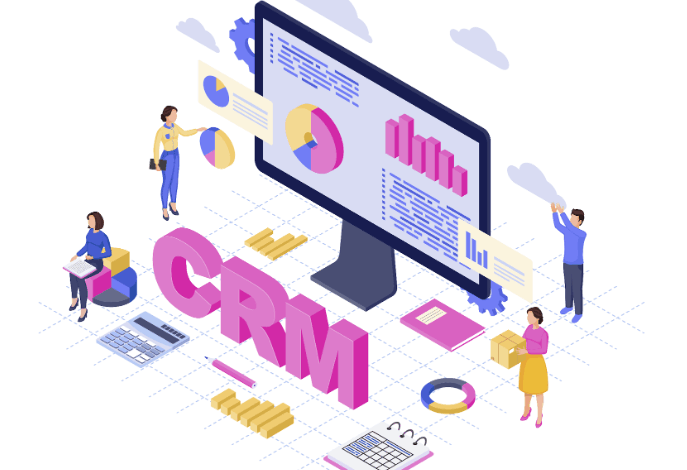
In today’s competitive business environment, organizations need more than just a contact database to thrive. Sales teams require powerful tools that can manage leads, nurture prospects, and close deals efficiently. This is where a CRM for sales automation comes into play. By combining customer relationship management with automated workflows, businesses can reduce manual tasks, gain real-time insights, and ensure consistent communication with clients.
A sales automation CRM doesn’t just store customer data – it actively works alongside teams, eliminating repetitive tasks and streamlining sales processes. From tracking leads to sending follow-up emails and generating performance reports, these systems allow sales professionals to focus on what they do best: building relationships and closing deals.
Key Aspects of Sales Automation in a CRM
A well-implemented CRM transforms sales processes by integrating automation at every stage of the customer journey. Below are the essential aspects that define how sales automation works within a CRM system.
Automated Workflows
Automated workflows are at the core of a sales automation CRM. These are sequences of tasks triggered by specific actions, such as a new lead filling out a form or a customer opening an email.
- Lead nurturing: Automatically send welcome messages and product information based on customer behavior.
- Deal progression: Move leads from one pipeline stage to another without manual input.
- Notifications and reminders: Ensure no lead goes unattended by scheduling automatic alerts.
By eliminating manual follow-ups, workflows accelerate response times and reduce the risk of human error.
Centralized Data
Sales teams need a single source of truth. A CRM centralizes customer data – emails, calls, meeting notes, purchase history – making it accessible across the organization.
- Unified view of each customer improves personalization.
- Data synchronization between sales, marketing, and support ensures consistency.
- Cloud-based storage allows access from anywhere, vital for hybrid and remote sales teams.
Centralized data creates alignment, empowering teams to deliver seamless customer experiences.
Task Automation
Repetitive tasks consume valuable time. An automated sales management platform handles these routine activities:
- Logging calls and emails automatically.
- Updating lead and deal statuses.
- Assigning tasks to the right sales reps based on territory or expertise.
- Sending scheduled follow-ups and calendar invites.
Automating these processes frees sales professionals to prioritize relationship-building activities.
Reporting and Analytics
Insightful reporting turns raw data into actionable strategies. Sales automation CRM systems provide advanced analytics, such as:
- Pipeline analysis: Understanding where leads drop off.
- Sales forecasting: Predicting revenue based on historical trends.
- Performance metrics: Monitoring team productivity and individual KPIs.
- Campaign ROI tracking: Evaluating marketing and sales alignment.
With these analytics, businesses can refine strategies, improve conversion rates, and optimize overall performance.
Benefits of Using a Sales Automation CRM
Adopting a sales automation CRM delivers measurable improvements across the business.
- Increased Productivity
Automation reduces manual input, allowing sales reps to focus on closing deals. Studies show that reps spend 30–40% more time selling when automation tools are in place. - Enhanced Lead Management
Leads are captured, scored, and routed automatically. This ensures that high-value prospects are prioritized and nurtured effectively. - Consistent Customer Experience
Automated follow-ups and personalized communication ensure prospects feel valued at every stage. - Improved Accuracy
Automation minimizes errors in data entry, reporting, and deal tracking. Clean data translates into more reliable insights. - Scalability
As businesses grow, automation ensures that increased workloads don’t overwhelm sales teams. Processes scale smoothly without requiring proportional increases in staff. - Better Collaboration
Centralized systems promote transparency and collaboration between sales, marketing, and support teams. - Faster Sales Cycles
By reducing delays in communication and approvals, automation accelerates deal closure.
Best Practices for CRM Automation Solutions
Implementing sales automation requires a strategic approach. Below are best practices that maximize success.
- Define Clear Objectives
Identify what you want to achieve – higher lead conversion, faster response times, or better forecasting. - Map Your Sales Process
Before automating, document your existing sales pipeline to identify which tasks can be automated without losing the human touch. - Start Small, Scale Gradually
Begin with automating basic tasks like follow-ups or data entry, then expand to more complex workflows as your team adapts. - Leverage Lead Scoring
Automate lead scoring to prioritize prospects based on engagement, demographics, and behavior. - Ensure Integration
Connect your CRM with email marketing tools, ERP systems, and customer support platforms for seamless data flow. - Personalize Automation
Use customer data to personalize emails and offers. Automation doesn’t mean generic – it should enhance personalization. - Monitor and Adjust
Continuously track performance metrics and refine workflows to adapt to evolving sales strategies. - Train Your Team
Provide adequate training to ensure adoption and effective use of the CRM system.
TOP of CRM Platforms with Sales Automation Include Bitrix24
Not all CRMs are created equal. Here are some of the top platforms that excel in sales automation.
1. Bitrix24
Bitrix24 is an all-in-one business suite that combines CRM, project management, communication, and HR tools.
Key Features:
- Automated sales pipelines with customizable workflows.
- Built-in telephony, email, and chat for seamless communication.
- AI-powered lead scoring and reporting.
- Collaboration tools like task management, file sharing, and video conferencing.
2. HubSpot CRM
HubSpot offers powerful automation features, especially for inbound marketing and sales alignment.
- Automated workflows for email campaigns and lead nurturing.
- Contact and pipeline management.
- Free entry-level CRM with scalable paid features.
3. Salesforce Sales Cloud
A leader in enterprise CRM, Salesforce provides advanced customization and automation.
- AI-driven insights with Einstein Analytics.
- Powerful workflow automation for large-scale teams.
- Extensive integrations with third-party apps.
4. Zoho CRM
Affordable and versatile, Zoho CRM is ideal for SMEs.
- Automated workflows, scoring rules, and assignment.
- Multi-channel communication tools.
- Integration with Zoho suite and third-party apps.
5. Pipedrive
Focused on pipeline management, Pipedrive offers intuitive automation.
- Visual sales pipelines.
- Automated reminders and follow-ups.
- Affordable plans with easy-to-use interface.
6. Freshsales (by Freshworks)
Freshsales provides AI-driven automation tailored for growing companies.
- Automated lead capture and deal progression.
- Built-in telephony and chatbots.
- Real-time reporting and analytics.
FAQs about Sales Automation CRM
- What is a sales automation CRM?
A sales automation CRM is a platform that combines customer relationship management with workflow automation. It manages customer data, automates repetitive sales tasks, and provides analytics for decision-making. - How does sales automation improve productivity?
By automating data entry, follow-ups, and task assignments, sales reps spend more time on high-value activities like closing deals, rather than administrative tasks. - Is sales automation CRM suitable for small businesses?
Yes. Platforms like Bitrix24, Zoho CRM, and Pipedrive offer affordable plans that scale with business growth, making them ideal for SMEs. - Can sales automation replace sales reps?
No. Automation supports sales teams by handling repetitive tasks but cannot replace the human relationship-building and negotiation skills required in sales. - What features should I look for in a sales automation CRM?
Look for automated workflows, lead scoring, reporting, centralized data, and integration with marketing and support systems. - How secure is data in automated sales CRM platforms?
Most leading CRMs follow strict compliance standards like GDPR and SOC 2. Always verify vendor certifications before implementation. - What’s the ROI of implementing sales automation?
ROI is measured in increased conversion rates, faster sales cycles, improved accuracy, and reduced overhead costs. Businesses often see measurable improvements within months.
Conclusion
An automated sales management system is more than just software – it’s a strategic investment that transforms how businesses approach sales. By centralizing customer data, automating workflows, and providing advanced analytics, these platforms enable teams to work smarter, close deals faster, and scale effortlessly.
Solutions like Bitrix24, HubSpot, Salesforce, and Zoho CRM cater to diverse business needs, from startups to enterprises. When implemented strategically with clear objectives, CRM platforms with built-in sales automation deliver significant improvements in productivity, customer satisfaction, and revenue growth.
In an era where speed and personalization define success, adopting a sales automation CRM ensures your sales team stays ahead of the competition.



